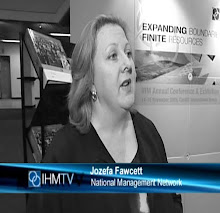The Learning Organisation and Knowledge Management
KnowledgeWorx have just returned from speaking at the ECLO (European Consortium for the Learning Organisation) 11th INTERNATIONAL CONFERENCE "Leadership in Learning"
24th-26th May 2004, Dublin, Ireland.
Our session, on Day 2, provided a summary of the key learning themes and focussed on ‘taking the measure’ of knowledge action and application by determining each person's focus against three separate yet interlinking dimensions, these were categorised as:
- Dimension of thinking
- Dimension of doing
- Dimension of being
1. LEARNING METHODOLOGIES: informal learning; accelerated learning; learning methods; eLearning; Broadband as a learning tool; Open Space methodology; Interactive TV; collaborative practice; workbased learning by doing
2. LEARNING ORGANISATION CLARIFICATION, ANALYSIS & DESIGN: processes; models; cultural adaptation; concept design; protocols & frameworks
3. COACHING, MENTORING, MANAGEMENT & LEADERSHIP: examples and case studies; ways to use; leadership training
4. KNOWLEDGE EXCHANGE, LEARNING AND SHARING: knowledge management; sharing methodologies; awareness and self-reflection; creation; development
The recent transatlantic conference, "BeTheChange – Transatlantic Systems Crisis Conference" held in both London & Philadelphia on 19th-21st May 2003 provided additional insight and support of the KnowledgeWorx 3-dimensional bi-polar approach:
"when we come to the issue of ‘what do I do, how can I contribute, how can I
make a difference’ we need to do the thing that is most natural for us – we
serve by being, knowing and doing, some are more BE-ers that DO-ers, others are
more KNOW-ers, some are all three. In order to effect real change, we need to
work on ourselves"
(from 'Being, knowing and doing the change' by Convenor: Serge Beddington-Behrens)
For more information on forging a collaborative approach to whole systems change and the 2005 conference "Waking up to the Wave" visit their website
This quote and the ensuing discussion at the ECLO Dublin conference highlighted the importance of the Knowledge Contributions Tool as a measure of an individuals' 'soft skill strengths' - which in turn can be used as a catalyst to produce a range of opportunties to build upon these within organisations.
Moreover, the results can be used as a measure of human relationship building – surely a driver to better understand knowledge workers as people?
Józefa
Co-founder
KnowledgeWorx



0 Comments:
Post a Comment
<< Home